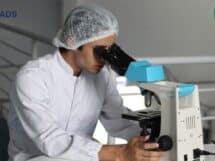Every member of a family across four different cities tested positive the same week, including an 80 year old grandmother, a five year old and a four year old. A story of their recovery.
Sometime in the third week of February, our editorial team was working on the looming COVID numbers in India. It didn’t look good. The second wave was becoming a reality. Merely weeks since that anticipatory piece on the second wave, almost every household in the country was afflicted by a ravaging second wave. And so was mine.
As a data journalist, looking at the myriad of COVID numbers has been my game. And with doctors, including critical care specialists, within my family, I have been surrounded by all possible knowledge of the virus. This time however, the virus itself had major infiltration plans. And it started with a slight, almost inconspicuous, itch in the throat which lingered on for a few days.
A precautionary test should clear things up, I thought. 36 hours later, in the early hours of the morning, a sudden fatigue set in just as I was wrapping up my fourth pre-fast meal of Ramadan. A phone call with my sister and I came to know that everyone at her house was down with fever, including my 80-year old grandma and my four year old niece. A few hours later, my thermometer read 101. By the end of day, everyone in my house too had soaring temperatures. The ‘precautionary’ test, by now, just became a confirmation of fears. I took a headcount and yes, all of my family, everywhere, was positive.
Now you’d expect the week’s trajectory to hover around care and treatment of each one of us. And I won’t blame you if you did. But the sheer scale of what was happening across the country was privy to everyone. Every day, we’d be flooded with texts and calls looking for beds, oxygen, medicines, or informing us of someone’s passing. So many calls were of the latter category, that every phone ring and every text shook us. Within the first week of our infections, we lost as many as 20 close friends and family. Several of them were unfortunate victims of circumstance – not getting oxygen on time, or failing to get a BiPAP machine, and in one case – a horrendous misdiagnosis of happy hypoxia. The “system” was under duress, we were told.
Sure, the system perhaps wasn’t ready to supply hospitals with enough oxygen, or have drugs in adequate supply, despite having over a year to prepare for it. But it wasn’t the system selling these critical drugs at inflated rates, was it? “The retail price may be 1100, but I’m a businessman, I’ll only give it for 2000,” said a pharmacy owner to me, as I struggled to procure prescribed antivirals. Prices of injectables were hitting six figures, often sold shadily. This wasn’t the “system”. This wasn’t a pandemic. This was part of our society, unwilling to act human.
So yes, many of us have been extremely fortunate to recover from COVID infection, my family being among them, and the country’s recovery numbers are promising. But for those whose lives were uprooted in days, hours, or even minutes, no statistic is positive enough, especially when what killed their kin wasn’t the infection as much as the “system”, and perhaps those profiteering ‘businessmen’ who have reserved for themselves the deepest circle of hell.
True, there can be no good without evil. When it was most needed, strangers stood up. NGOs and civil society stepped up, and digital platforms often proved more helpful than government helplines. Countless lives were saved by random strangers who perhaps donated plasma at the right time, or brought an oxygen cylinder when needed, or simply passed on the right contact number.
A crisis tends to split the society right down the middle – the profiteer and the humane. For our sake, we hope the scales are tipped towards the latter.


















Add Comment